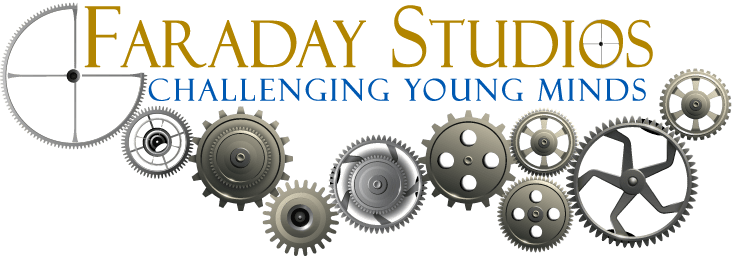For decades, we at Faraday Studios have been involved in helping to build such a workforce. We are the current keepers of a STEM education heritage that began 200 years ago in London, at the Royal Institution of Great Britain. We recognize the necessity to find and mentor the next generation of master STEM teachers and students.
To that end, we have been searching for young students and teachers seeking to grow their skills and abilities in learning and sharing the delight that the STEM world has to offer them.
Faraday Studios sees unprecedented opportunities in the field. Our experience and conversations with science and technology leaders at international science festivals, lead us to believe that one of the best opportunities we can offer is the Technology transfer of Hands-On Science Learning. We possess the largest collection of relevant STEM based learning materials in the world. We want to share what we have with all teachers and students. We want to train them to be master teachers and students, empowering them to inspire future generations.
Why does Faraday Studios support informal science learning?
Yet the growing body of research on science learning makes clear that a basic understanding of science requires far more than the acquisition of a body of science knowledge. Rather, knowing science includes understanding, at a basic level, the nature and processes of science. For these reasons, now more than ever, informal environments can and should play an important role in science education.
Informal learning experiences are often characterized as being guided by learner interests, which are voluntary, personal, deeply embedded in a specific context, and open-ended.
Successful informal science learning experiences are seen as not only leading to increased knowledge or understanding in science, but also to furthering inquiry, enjoyment, and a sense that science learning can be personally relevant and rewarding.
It is clear that a great deal of science learning — often unacknowledged — takes place outside school in informal environments.
People engaging in everyday learning may not be aware that they are learning. Instead, they simply see the activity as part of their daily lives.


